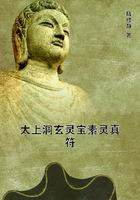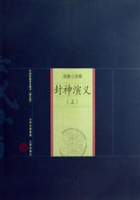I proceed to notice one or two more contrivances by which theancient trammels of proprietary right were more or lesssuccessfully relaxed, premising that the scheme of this treatiseonly permits me to mention those which are of great antiquity. Onone of them in particular it is necessary to dwell for a momentor two, because persons unacquainted with the early history oflaw will not be easily persuaded that a principle, of whichmodern jurisprudence has very slowly and with the greatestdifficulty obtained the recognition, was really familiar to thevery infancy of legal science. There is no principle in all lawwhich the moderns, in spite of its beneficial character, havebeen so loath to adopt and to carry to its legitimateconsequences as that which was known to the Romans as Usucapion,and which has descended to modern jurisprudence under the name ofPrescription. It was a positive rule of the oldest Roman law, arule older than the Twelve Tables, that commodities which hadbeen uninterruptedly possessed for a certain period became theproperty of the possessor. The period of possession wasexceedingly short one or two years according to the nature of thecommodities and in historical times Usucapion was only allowed tooperate when possession had commenced in a particular way; but Ithink it likely that at a less advanced epoch possession wasconverted into ownership under conditions even less severe thanwe read of in our authorities. As I have said before, I am farfrom asserting that the respect of men for de facto possession isa phenomenon which jurisprudence can account for by itself, butit is very necessary to remark that primitive societies, inadopting the principle of Usucapion, were not beset with any ofthe speculative doubts and hesitations which have impeded itsreception among the moderns. Prescriptions were viewed by themodern lawyers, first with repugnance, afterwards with reluctantapproval. In several countries, including our own, legislationlong declined to advance beyond the rude device of barring allactions based on a wrong which had been suffered earlier than afixed point of time in the past, generally the first year of somepreceding reign; nor was it till the middle ages had finallyclosed, and James the First had ascended the throne of England,that we obtained a true statute of limitation of a very imperfectkind. This tardiness in copying one of the most famous chaptersof Roman law, which was no doubt constantly read by the majorityof European lawyers, the modern world owes to the influence ofthe Canon Law. The ecclesiastical customs out of which the CanonLaw grew, concerned as they were with sacred or quasi-sacredinterests, very naturally regarded the privileges which theyconferred as incapable of being lost through disuse howeverprolonged; and in accordance with this view, the spiritualjurisprudence, when afterwards consolidated, was distinguished bya marked leaning against Prescriptions. It was the fate of theCanon Law when held up by the clerical lawyers as a pattern tosecular legislation, to have a peculiar influence on firstprinciples. It gave to the bodies of custom which were formedthroughout Europe far fewer express rules than did the Roman law,but then it seems to have communicated a bias to professionalopinion on a surprising number of fundamental points, and thetendencies thus produced progressively gained strength as eachsystem was developed. One of the dispositions it produced was adisrelish for Prescriptions; but I do not know that thisprejudice would have operated as powerfully as it has done, if ithad not fallen in with the doctrine of the scholastic jurists ofthe realist sect, who taught that, whatever turn actuallegislation might take, a right, how long soever neglected, wasin point of fact indestructible. The remains of this state offeeling still exist. Wherever the philosophy of law is earnestlydiscussed, questions respecting the speculative basis ofPrescription are always hotly disputed; and it is still a pointof the greatest interest in France and Germany, whether a personwho has been out of possession for a series of years is deprivedof his ownership as a penalty for his neglect, or loses itthrough the summary interposition of the law in its desire tohave afinis litium. But no such scruples troubled the mind ofearly Roman society. Their ancient usages directly took away theownership of everybody who had been out of possession, undercertain circumstances, during one or two year. What was the exacttenor of the rule of Usucapion in its earliest shape, it is noteasy to say; but, taken with the limitations which we findattending it in the books, it was a most useful security againstthe mischiefs of a too cumbrous system of conveyance. In order tohave the benefit of Usucapion, it was necessary that the adversepossession should have begun in good faith, that is, with beliefon the part of the possessor that he was lawfully acquiring theproperty, and it was farther required that the commodity shouldhave been transferred to him by some mode of alienation which,however unequal to conferring a complete title in the particularcase, was at least recognised by the law. In the case thereforeof a Mancipation, however slovenly the performance might havebeen, yet if it had been carried so far as to involve a Traditionor Delivery, the vice of the title would be cured by Usucapion intwo years at most. I know nothing in the practice of the Romanswhich testifies so strongly to their legal genius as the usewhich they made of Usucapion. The difficulties which beset themwere nearly the same with those which embarrassed and stillembarrass the lawyers of England. Owing to the complexity oftheir system, which as yet they had neither the courage nor thepower to reconstruct, actual right was constantly gettingdivorced from technical right, the equitable ownership from thelegal. But Usucapion, as manipulated by the jurisconsults,supplied a self-acting machinery, by which the defects of titlesto property were always in course of being cured, and by whichthe ownerships that were temporarily separated were again rapidlycemented together with the briefest possible delay. Usucapion didnot lose its advantages till the reforms of Justinian. But assoon as law and equity had been completely fused, and whenMancipation ceased to be the Roman conveyance, there was nofurther necessity for the ancient contrivance, and Usucapion,with its periods of time considerably lengthened, became thePrescription which has at length been adopted by nearly allsystems of modern law.
同类推荐
热门推荐
凤女无尊:小子,别欠揍!
◆◆◆世人奉行一句话,有凤凰大人在的地方,就没有尊者。◆◆◆若有来生,我希望能护你们周全,绝不让你们比我先死。当真异世重生,躯体却只是一个魔武废人,还挂着野种、私生女的头衔,唯一的亲人也只是病重生命垂危的母亲。父亲不详,不过,听老妈的意思,好像是个牛人。废人?真的如此吗?凤凰察觉到这身体的状况时,简直欣喜若狂,那是绝品天资,若是前世有此等的好资质,她会家破人亡?“此生,我定能拥有保护所在乎的人的资本。”恢复魔力药剂?还不如凤凰手中的一颗糖豆。魔武不能双修?魔武壁障坚如磐石?为何凤凰伸出小指头轻轻一碰就破!进阶困难重重?奈何,凤凰吃一株珍贵药材,升一级就当别人三级。越级挑战绝无可能?废人凤凰仅一招将学院的所谓第一高手、第一天才摁翻。战宠难求?一人一生仅一只?慎重择之?凤凰看着面前的一堆,都是签订契约的,好像就没有一个弱的,还有一群眼巴巴的往她面前蹭。牛人太多,很嚣张?凤凰跃跃欲试,打完之后哭丧着脸,“我不喜欢恃强凌弱,打之前我真的不知道你比我弱。你看起来明明就比我强的。”什么各方势力,什么几大禁地,什么诸多强横种族?还有那连通各界的无为九重天,实力不够者,进入十死无生?凤凰只看到他们的宝物。…但凡接触过凤凰的人都知道她脾气好,只要能付出相应的代价,好好说话,不论三教九流,是好是坏,基本就能得到她的帮助,但是,切莫招惹她身边的人。★★★★★★凤凰护短,不分是非,不问理由,不问青红皂白,修理了再说。凤凰记仇,不分强弱,不问背景,不给任何人面子,宰了再说。☆☆☆过程,大概就是升升级,掐掐架,寻寻宝,惊心动魄自然不能少。美男多多,人家凤凰大人魅力摆在哪儿,招蜂引蝶,很正常。美女自然不能少,合理搭配,看着不累嘛。结局?☆☆☆(水蓝玄幻大作,玄幻也是偶最喜欢看的。刚开始写文的时候就想写了,只是那时候玄幻在潇湘实在是大冷门。自我感觉,玄幻应该才是强项,言情?唉,到现在似乎都还是有些掌握不到位。亲们多支持,多提意见,谢谢!!!)★文文人物、兽兽领养表:依旧笑领养凤凰叉子茵领养九皇月依浅雪领养亚伦妙淼渺领养浅雪妖娆月魔领养黑雪刑冷墨领养夜火半杯冷咖啡领养龙羲、茜茜havemuch领养孤狐、魔根藤慕容葭儿领养小蛇冰羽灵领养君浅彦luyiyi005领养加洛、小鱼儿~紫~煊~雨领养老公今天又吃醋了
上一世的迟姝颜活的憋屈,明明是个大富大贵的命格,却被人‘借运’,福气变霉气,一手好牌打烂,家破人亡,亲戚霸占瓜分财产,高考考试被人举报作弊,前途尽毁。而她还傻兮兮的对策划一切的始作俑者好友感恩戴德。直到有一天,一个人点破这一场骗局,收她为徒。迟姝颜恨,浴火重生,成为闻风丧胆的女魔头,杀尽所有黑心肠的人,因此也断了自己的生机。重生一世,她带着上一世的记忆又回到高考前。这一世的她身负异能。她发誓将上辈子害她家破人亡的人全部踩在脚底。只是仇还刚报没多久。有一天摸到一个商圈大佬,竟然看见自己乖乖跪在大佬面前叫爸爸。迟姝颜震惊脸:我未来到底混的多掺?祁臻柏,帝都权势滔天,根基深厚祁家的掌权人,当之无愧的天之骄子,长相俊美,性格冷漠,手段铁血强势,贵市排名第二的单身汉,哪哪都好,唯独体弱多病,被医生断定活不过三十岁。前世一生定格在二十九岁。然而今世,遇到她开始,就有些不同了。















